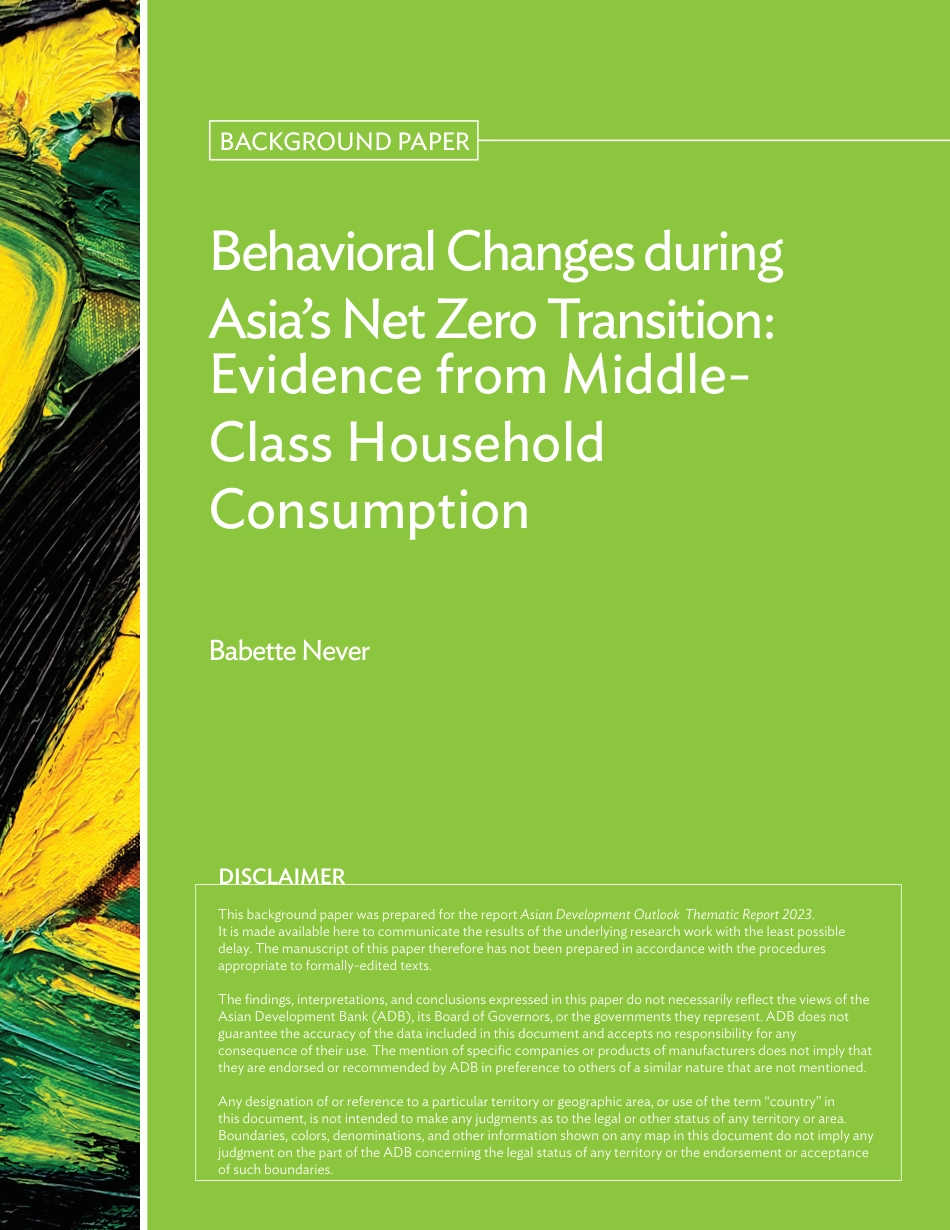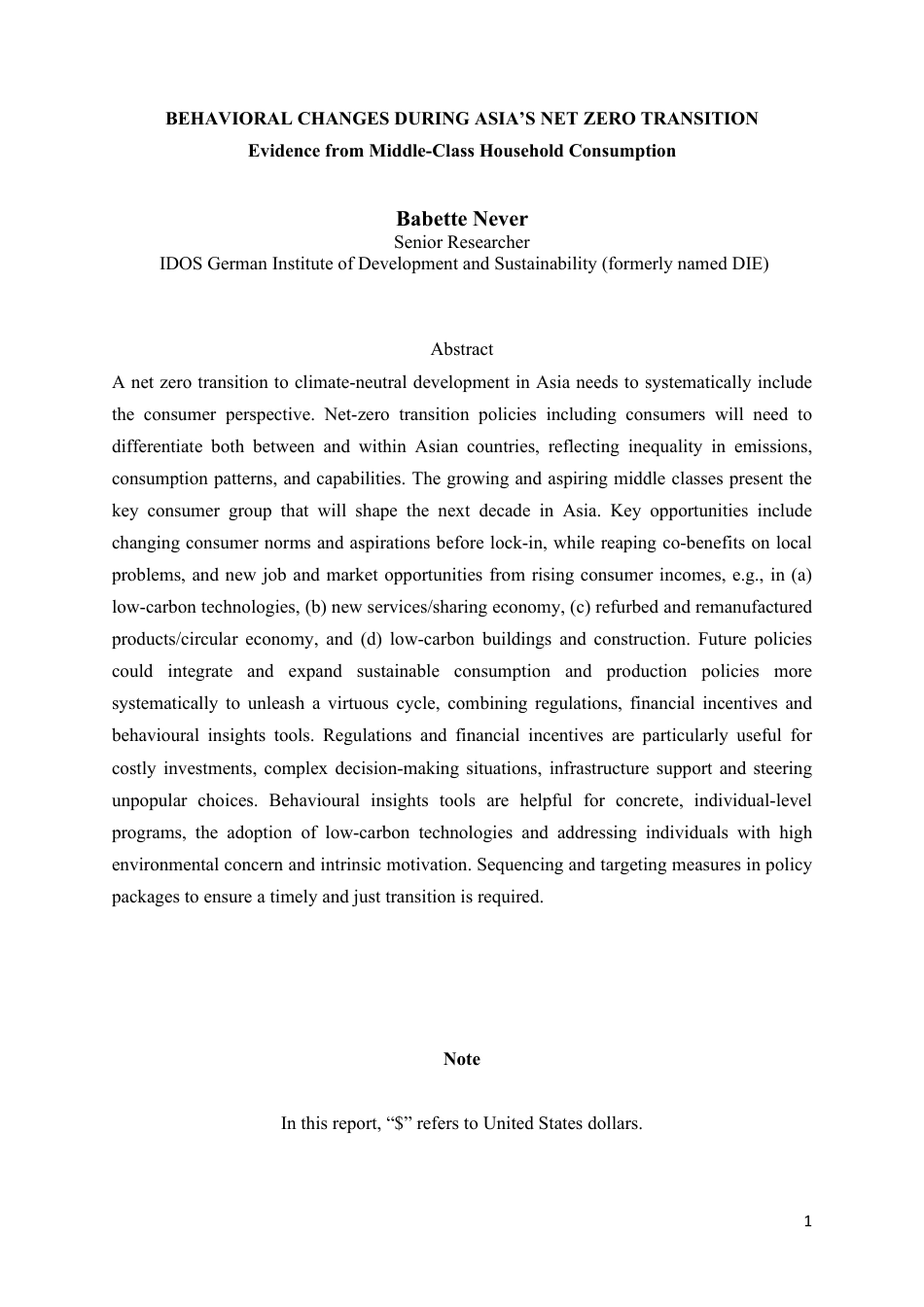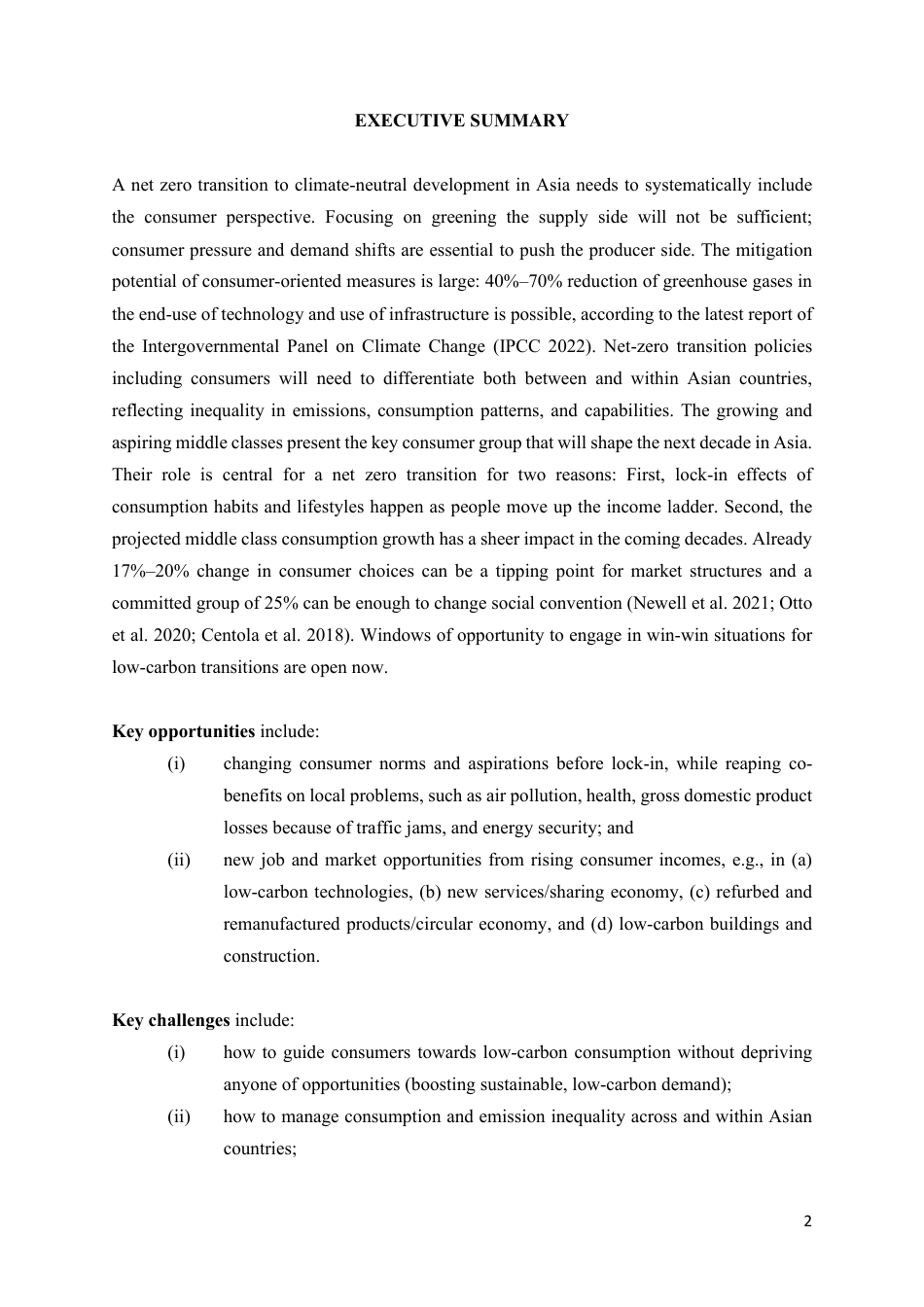BACKGROUND PAPERDISCLAIMERThis background paper was prepared for the report Asian Development Outlook Thematic Report 2023. It is made available here to communicate the results of the underlying research work with the least possible delay. The manuscript of this paper therefore has not been prepared in accordance with the procedures appropriate to formally-edited texts.The findings, interpretations, and conclusions expressed in this paper do not necessarily reflect the views of the Asian Development Bank (ADB), its Board of Governors, or the governments they represent. ADB does not guarantee the accuracy of the data included in this document and accepts no responsibility for any consequence of their use. The mention of specific companies or products of manufacturers does not imply that they are endorsed or recommended by ADB in preference to others of a similar nature that are not mentioned.Any designation of or reference to a particular territory or geographic area, or use of the term “country” in this document, is not intended to make any judgments as to the legal or other status of any territory or area. Boundaries, colors, denominations, and other information shown on any map in this document do not imply any judgment on the part of the ADB concerning the legal status of any territory or the endorsement or acceptance of such boundaries.Behavioral Changes during Asia’s Net Zero Transition: Evidence from Middle-Class Household ConsumptionBabette Never1 BEHAVIORAL CHANGES DURING ASIA’S NET ZERO TRANSITION Evidence from Middle-Class Household Consumption Babette Never Senior Researcher IDOS German Institute of Development and Sustainability (formerly named DIE) Abstract A net zero transition to climate-ne...



